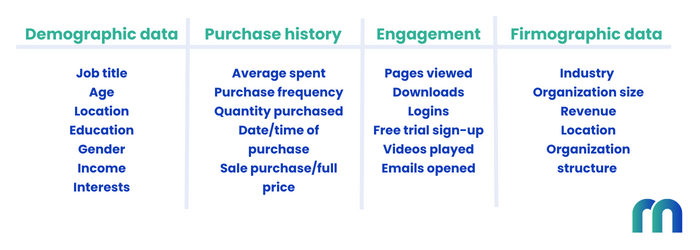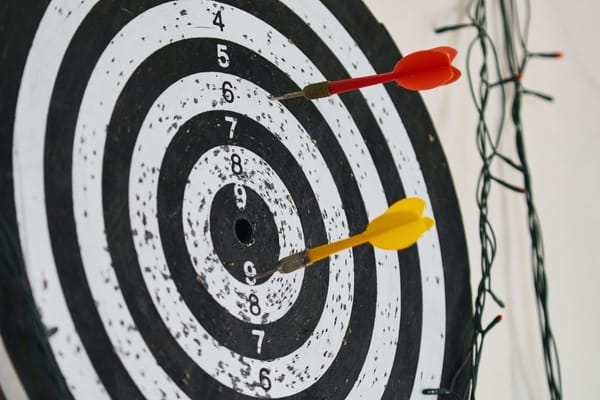Predictive lead scoring is a powerful tool that helps optimize the sales process and maximizes the potential of your leads.
By using predictive lead scoring, you can quickly and accurately assess the potential of each lead and prioritize them based on their likelihood of conversion. This allows you to focus your resources on the leads that are most likely to convert, increasing your chances of success.
Additionally, predictive lead scoring can provide valuable insights into customer behavior that can be used to further refine your sales process and optimize it for maximum efficiency. In this article, we'll discuss how you can make the most of your predictive lead score data and use it to optimize your sales process for success.
- What is predictive lead scoring and how does it work?
- Benefits of predictive lead scoring
- How to implement a predictive lead scoring system
- Are you ready for predictive lead scoring?

What is predictive lead scoring and how does it work?
Predictive lead scoring is an AI-driven process that uses customer data to determine the likelihood of a lead converting into a customer. By leveraging machine learning algorithms, predictive lead scoring can accurately predict the probability of a lead becoming a customer. This helps sales teams prioritize leads and focus their efforts on those that are likely to convert.
Predictive lead scoring takes into account a combination of factors such as past purchase behavior, website engagement, demographic information, and more, of existing and potential customers, to generate an accurate prediction of conversion probability. By utilizing this technology, companies can optimize their marketing campaigns and increase their return on investment (ROI).
Before this technology, sales teams were largely using their own best judgment about which customers to contact. Demographical data was used to rank customers on a scale of most likely to purchase to least likely. But the problem with this subjective process is that it’s not accurate, and it can let quality leads slip through the cracks.
By utilizing machine learning for predictive lead scoring, you take the process a step further by analyzing data to predict future outcomes. It helps remove human error or bias leaving just the raw data to make more accurate predictions.

Benefits of predictive lead scoring
Predictive lead scoring is an invaluable tool for companies as it helps them identify and prioritize the most qualified leads that have the highest potential for success. The predictive lead scoring models will also help the sales team decide if they should pursue a high-value or low-value opportunity. They can then use the data to prioritize how many of their resources they should devote towards each opportunity, giving them an idea of which opportunities have the highest potential for success.
Here are just some of the benefits of predictive lead scoring:
Helps marketing and sales alignment
Misalignment between sales and marketing is an issue for many organizations, especially when it comes to leads. Sales may feel like they’re not getting very good leads from marketing, and marketing may not understand why that’s the case, and this can cause friction between the two teams.
By implementing predictive lead scoring, you improve the quality of leads sales are reaching out to, increasing the chance of a conversion. This in turn will encourage better collaboration between marketing and sales, as they’ll both be able to reap the benefits of more accurate lead scoring.
Eliminates human error
No matter how good your team is at analyzing potential customers, there will always be inherent biases that just come with being human - they can never be completely objective. When you use a computer algorithm, as you would for predictive lead scoring, to do those analyses for you, it removes that inherent human judgment for more accurate results.
Saves time by producing quick results
By automating your lead scoring system, you free up loads of time for the sales team as they no longer have to manually vet potential customers. The results will come considerably faster than if a person was manually doing all that work. So you’ll receive high-quality, data-driven leads in a fraction of the time, and have even more time for your sales teams to follow up on those leads.
Constant improvements
As time goes on, you’ll collect more customers and therefore more data. And the more data you have, the better your predictive lead scoring model will be, as it has more data points to work with.
So it’s not just a case of leaving the system to run and letting it be, it will actually continually improve and get better all the time as it has more and more leads to work with. So your marketing and sales teams will see the benefits and watch as the process becomes more effective and efficient.

Image courtesy of ClaudeAI.wiki
How to implement a predictive lead scoring system
So, now you know about all the cool stuff predictive lead scoring can do, how do you get started?
You’ll need software that seamlessly integrates into your current CRM, so the machine learning technology has access to all those data points so it can start identifying your best leads. It makes its forecasts based on historical and existing data so it can calculate the likelihood of conversion.
The machine learning algorithms process the data to discover patterns and then determine which attributes and combination of attributes indicate a likelihood of conversion. Once the attributes are selected, a number of models are created and tested to pick the one that gives the most accurate probability of conversion for each lead. As more leads enter the system, the model adjusts its attributes so it’s continually improving and learning, getting more accurate over time.
Here are some examples of the key data points used in predictive lead scoring:

You might use predictive lead scoring software from a platform like HubSpot or MadKudu, as they have the benefit of being easier to use and less expensive than building your own custom engine from scratch. However, building your own does have the benefit of being able to build your own data infrastructure that you have full control over.
Are you ready for predictive lead scoring?
There’s one key thing you really need to get started with predictive lead scoring: data.
The machine learning process begins with the gathering of data, and while it can be helpful to use public datasets, you ideally need historical data about your sales activity so you can better understand what kind of leads become sales. So if you haven’t logged your customer behavior and profile information, you may not have what you need for a predictive lead scoring model.
Remember, these models can work with much more data than a person ever could manually. So the more data you have, the better. When it comes to building the model, you will need an in-house skilled individual like a data scientist, or you can opt for a pre-made platform. Whichever you choose, you’ll need someone who can build, integrate, and maintain the engine.
Final thoughts
By using predictive analytics, organizations can gain insights into the behaviors and attributes of their target customers, allowing them to create a scoring system that accurately predicts which leads are most likely to convert. Implementing such a system can help organizations save time, money, and resources by focusing their efforts on the most promising leads.
Interested to learn more about predictive lead scoring? Join your peers in the Revenue Marketing Alliance community!




 Follow us on LinkedIn
Follow us on LinkedIn



